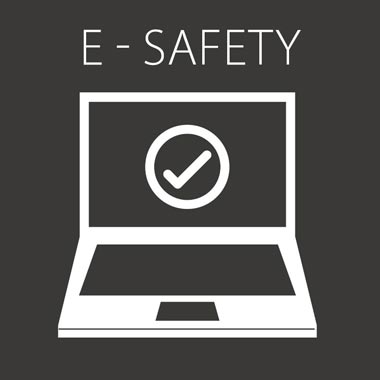Interview with Internal Quality Assurer (IQA), Shirley Gibbins
Why did you want to become an IQA?
I have always enjoyed teaching and learning, so I had always envisioned myself moving into the academic side of the veterinary industry. I liked the variety that the IQA position offered and felt that I already had relevant experience having been a clinical Coach in practice. This role seemed more suited to me than lecturing, and encompassed so many aspects of student veterinary nurse training, that I felt it would give me the best introduction into academia.
How did you get into it?
When I decided to leave clinical nursing, I saw the job advertised and instantly thought it was the perfect job for me. I sent in my application form with the attitude that worst case scenario I can ascertain exactly what experience or qualifications would be required for the role. I was offered the job quite quickly and immediately accepted – I still think it is a perfect example of ‘right time, right place’.
Any advice for studying and applying for the role?
I would advise coming and spending a day with us – we offer shadow days which can be completed before or after the interview process, and will ensure you have a very good understanding of every aspect of the job role. Alternatively, if that is not an option, get in touch with the Quality Team (via email or social media) and ask your questions, which we will be more than happy to answer.
You will be trained by our team if you are successful in your application, but a thorough knowledge of the Nursing Progress Log (NPL) and student nurse training would be very helpful.
What would you describe as a typical day?
My job is so varied we very rarely have two days the same! But as a (very) broad overview, I would say we always spend some time answering emails, mostly student or Clinical Coach queries regarding the NPL, or questions from practices about their Training Practice application.
We spend a lot of our time out visiting different practices, as we support students through a number of different training programs at both diploma and degree level. We may also assess the students, and possibly their clinical coaches as well, whilst out in practice, and annually checking that all of our Training Practices are complying with their training requirements. It goes without saying that this requires military-level organisation! We do have to spend some of our time planning our visits and ensuring the practices can see us when we would like, although this process will soon be undertaken by our Admin team to free up our time.
Another major aspect of our role is the auditing of the students’ NPLs, which occurs at different times throughout the year depending on their course and their start date. We have to ensure that the student has completed their NPL to a satisfactory standard and we then assess their practical skills whilst at college, usually during a flexible support session, to ensure they are competent to the OSCE standard. We are essentially confirming that our students are ready to take their practical exams and can go on to become Registered Veterinary Nurses.
Occasionally we are required to deliver clinical coach training or the annual standardisation course that all coaches must attend. This is vital in ensuring that our Coaches are supporting our students with the most up-to-date information and practices. I enjoy delivering these sessions as it means that we get to meet all of the coaches and get them excited about training our students.
On a very non-typical day we may also attend external events, such as TP Congress or Head Nurse Congress hosted by The College of Animal Welfare (CAW). We also have the opportunity to represent CAW at other congresses, such as BVNA Congress or the London Vet Show.
What is your favourite thing about your job?
Definitely the variety! I get to travel to practices all over London and the south of England – even occasionally taking a day trip to Jersey. I am a people-person so I really enjoy getting to meet so many different people on a day-to-day basis.
What is your least favourite thing about your job?
Unenthusiastic clinical coaches can be a real challenge, and can often be a deciding factor as to whether or not their student qualifies. The coach may have lost their love for training after having a difficult student, or feeling overworked, and that is where we can step in and support the coach and the student, from both the lecturing and quality sides of CAW.
Have you had any unusual experiences within the role?
I definitely didn’t get to fly to Jersey when I was clinically nursing! I also love seeing funny patient names on student NPLs – my favourites are where the names include Lordships!
What are the benefits of being an IQA?
This role is very autonomous, and I enjoy being able to plan my own time. I also think the variety is a major bonus because there isn’t the opportunity to become bored with an aspect of the role, it changes so much.
Is there anything you wish you had known before hand?
I wish I had known that there are definitely better times to travel than others! When I first started I didn’t appreciate quite how bad traffic could get on a Monday morning, so I would book visits and then leave without checking the traffic conditions. After a few too many hours of sitting on the M25 I am now much better at checking the traffic before I leave the office!
Any top tips for the role?
Organisation and efficiency are a must. With variety comes the opportunity to potentially become overwhelmed by the job, but if you stay on top of your diary management, you will be fine.
What opportunities are open to you once you become an IQA?
CPD is actively encouraged – I know all practices say that, but at CAW it is true. I have completed teacher and assessor training and plan to move onto a post-graduate course in the near future. Not many practices would be willing to fund that level of course, but CAW recognises that with improved knowledge comes improved teaching standards. A number of my colleagues are on Masters courses, and one or two even completing PhDs.
Find out more…
If you are interested in becoming an IQA and would like to experience first-hand ‘a day in the life of’ we can help you by arranging a ‘shadow day’! That way, you can see how the day develops from start to finish, see what the role involves and get more an idea of if it is for you. Please contact our HR team on 01480 422060 / jobs@caw.ac.uk.
How do I apply?
If you enquiring in response to a job advertisement please follow the contact instructions noted against each individual vacancy. View our current job vacancies here.







